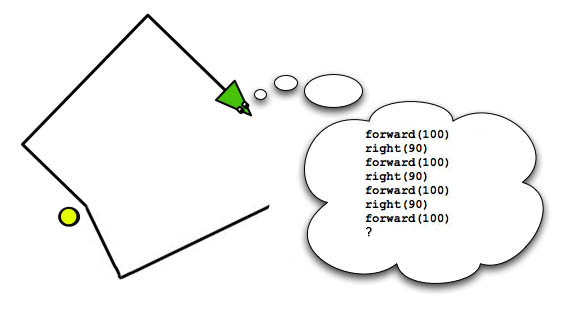It has recently been in the news that some particle may have exceeded the legal speed limit for all things : 299,792,458 metres per second.
Of course, this will probably turn out to be a bad sum somewhere or perhaps waves ganging up, but the whole hubbub has raised my hackles, and here’s why.
Because Albert Einstein at no time said what they say he said (see here for example). They misunderstand relativity! Things can move at any speed we want, and I will try to explain the fuss now.
So let’s get to it!
==============
First, we have to consider the way space warps when we move.
The problems started when people realised that light always seems to have the same speed, regardless of the speed you were moving when you saw it. This seems to be a contradiction, because surely if you fly into the light ever faster, it will pass you ever faster?
Well the tests were pretty clear, this does not happen. The speed is always c.
For several years, people were unsure why – until they were told by Einstein in 1905. In the meantime, another ponderer of the problem (Lorentz) decided to write down the maths that are required to square the circle.
The so-called Lorentz equations show, unequivocally, that space and/or time need to warp in order for relative speeds of c not to be exceeded, even when two items are going very close to c in opposite directions to one another.
So something needed to give, and it was space and time!
So, newsflash! it was not Einstein that first published on space and time warping. His contribution (along with Henri Poincaré and a few others) was to explain how and why. His special theory showed that because there is no ‘preferred’ frame of reference, a speed limit on light was inevitable. The term ‘relativity’ come from this – basically he said, if everything is relative, nothing can be fixed.
==============
Ok, so we have some nice observations that nothing seems to go faster than the speed of light – and we have a nice maths model that allows it. So why do I persist in saying things can go faster than the speed of light?
Let me show you…
There is a critical difference between ‘going’ faster than light and being ‘seen to be going’ faster than the speed of light, and that is where I am going with this.
So lets take this apart by asking how we actually define speed.
If a particle leaves point a and then gets to point b, we can divide the distance by the time taken and get the mean speed (or velocity to be pedantic).
The issue with relativistic speeds are that the clock cannot be in both point a and point b. So we need to do some fancy footwork with the maths to use one or other of the clocks. So far so good. This method will indeed never get a result > c.
The nature of space forbids it – if the Lorentz transformations that work so well are to be taken at face value, then for something to exceed c by this method of measurement, is much the same as a number exceeding infinity.
So all is still well. Until you ask, what about if the clock is the thing that travelled from a to b?
In this case, the transformations cancel! The faster the movement, the slower time goes for the clock, and you will see its ticks slow down, thus allowing its speed to exceed c.
The clock will cover the distance and appear to have tavelled at c on your own (stationary) clock, but the travelling clock will have ticked fewer times!
If you divide the distance by the time on the travelling clock, you see a speed that perfectly matches what you would expect should no limit apply. Indeed, the energy required to create the movement matches that expected from simple Newtonian mechanics.
The key point here is that while the clock travelled, the reader of the clock did not. If you do choose to travel with the clock, you will see it tick at normal speed, and see the limit apply – but see the rest of the universe magically shrink to make it so.
Some have argued that I am not comparing apples with apples, and that by using an observer in a different frame to the clock I am invalidating the logic.
To those who say that, I have to admit this is not done lightly. I have grown more confident that this inference is valid by considering questions such as the twin paradox over and over.
The twin paradox describes how one twin who travels somewhere at high speed and then returns will age less than his (or her) stationary twin.
Now if we consider a trip to Proxima Centauri (our nearest neighbour) the transformations clearly show that if humans could bear the acceleration required (we can’t) and if we had the means to get to, say, 0.99c for most of the trip, that yes, the round-trip would take over 8 years and no laws would be broken. However the travellers themselves will experience time 7 times slower (7.089 to be precise). Thus they will have aged less than 8 years. So, once they get home and back-calculate their actual personal speed, it will exceed all the live measurements.
This has bothered me endlessly. Although taken for granted in some sci-fi books (the Enders Game saga for example) this clear ‘breakage of the c-limit’ is not discussed openly anywhere.
Still uncertain why people were ignoring this, I read a lot (fun tomes like this one) learned more maths (Riemann rules!) and also started to look at the wider implications of the assertion.
On the one hand, the implications are not dramatic, because instant interstellar communication is still clearly excluded, but that whole issue of needing a 4 years flight to get to Proxima Centauri is just wrong. If we can get closer to c we can indeed go very far into the universe, although our life stories will be strangely punctuated, just as in the Ender books.
But what about the implications for the other big festering boil on the body of theories that is physics today – quantum theory?
Well, if one is bold enough to assert that it is only measurement that is kept below c and not ‘local reality’, then one can allow for infinite speed.
In this scenario, we are saying measurement is simply mapping reality through a sort of hyperbolic lense such that infinity resembles a limit. Modelling space with hyperbolic geometry is really not as unreasonable as all that, I don’t know why we are so hung up on Euclid.
With infinite speed at our disposal, things get really interesting.
We get things like photons arriving at their destination the same tme they leave their source. Crazy of course… but is it?
Have we not heard physicists ask – how is it the photon ‘knows’ which slit is blocked in the famous double slit experiment? It knows because it was spread out in space all the way from it’s source to it’s final point of absorption.
If you hate infinities and want to stick with Lorentz, you can equally argue that, for the photon, going exactly at c, time would stand still. Either way, the photon feels like it is everywhere en route at once.
If the photon is indeed smeared out, it probably can interfere with itself. Furthermore, it is fitting that what we see is a ‘wave’ when we try to ‘measure’ this thing.
A wave pattern is the sort of thing I would expect to see when cross sectioning something spread in time and space.
Please tell me I’m wrong so I can get back to worrying about something useful. No, don’t tell me – show me – please! 😉








